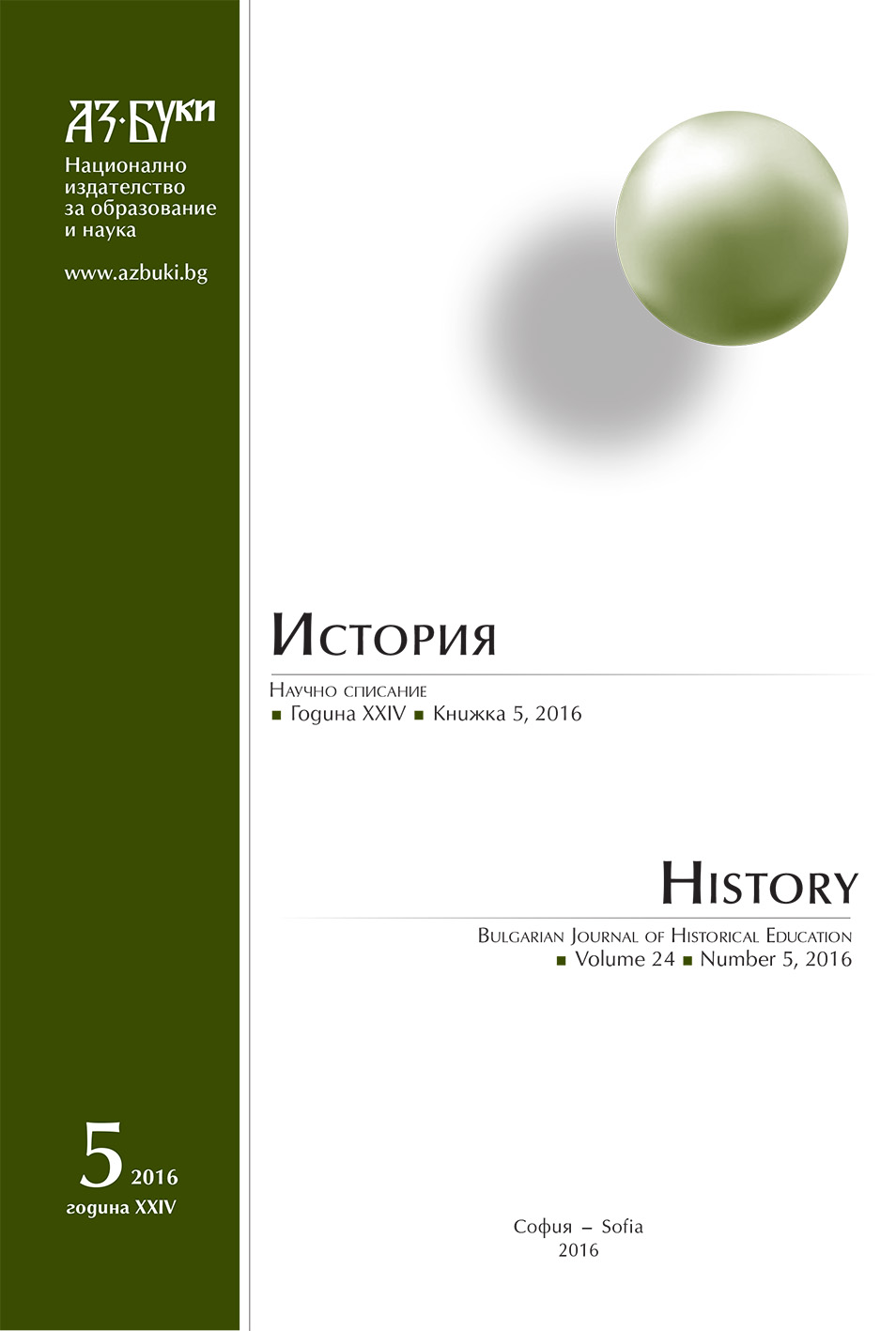Завоят в отношенията между социалистическия лагер и Югославия след смъртта на Сталин (1953 – 1955)
The Turn in the Relations Between Socialist Camp and Yugoslavia after Stalin’s Death (1953 – 1955)
Author(s): Nadezhda YankovskaSubject(s): History, Diplomatic history, Economic history, Recent History (1900 till today), Special Historiographies:, Post-War period (1950 - 1989), History of Communism, Cold-War History
Published by: Национално издателство за образование и наука „Аз-буки“
Keywords: Socialist camp; Yugoslavia; Communist Party of the Soviet Union; Yugoslavia; Khrushchev; Tito; People’s Republic of China
Summary/Abstract: After Stalin’s death in March 1953 a new phase in the Soviet foreign policy started. The Soviet leadership took the initiative to restore relations with Yugoslavia, which in the period 1948 – 1953 recorded their lowest point. All countries of the socialist camp were involved in that mission. Despite the fact that Tito was also positive about the idea of normalizing the relations between the two countries, in the beginning he had some doubts about the true intentions of the Soviet Union. All this, together with the western orientation of the Yugoslav foreign policy after the split between Tito and Stalin, significantly complicated the dialogue. For this reason, the restoration of Soviet-Yugoslav interstate relations was a relatively long and delicate process. Eventually it was reached in May – June 1955. A more complicated issue to be solved remained the normalization of inter-party relations. Tito felt that at this stage his party and people were not prepared for this. He also feared that his connections with the West could be harmed by the convergence with the CPSU.
Journal: История
- Issue Year: 24/2016
- Issue No: 5
- Page Range: 490-506
- Page Count: 17
- Language: Bulgarian
- Content File-PDF

